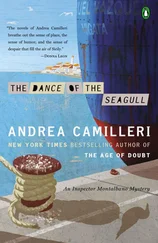When Saúl came for his official visit, accompanied by his family, the stairs groaned beneath the sound of crutches and canes. At the meeting, the main topic of conversation was money. The teacher promised to buy an elegant apartment in the center of Santiago and to settle there with Raquel, giving her all the luxury to which she was accustomed. Jaime, for his part, agreed to cover all the expenses of the wedding. The ceremony was to take place in an enormous hall near the plaza of Diego de Almagro, near where Jashe lived. This would make it easier for the old lady to get there. A week before the great event, seamstresses completed a bridal gown for Raquel with a train three meters long. When Jaime met with Saúl for a private talk, having been warped by my detective activities I put my ear to the keyhole and listened to what they were saying. My father, his sharp voice infected by bitter anger, said to the groom, “You will be part of our family. We need to mend our fences. Tell me, how can I have confidence in your decency if you, a grown man, and a teacher no less, dared to fornicate with a student, an underage girl, a virgin, in this case my daughter?”
“But what are you saying to me, Don Jaime? Whence such monstrous accusations? Raquelita is a goddess to me, immaculate, pure! Even today, a week before the wedding, I have not yet known the taste of her lips.”
“But. then. my daughter isn’t pregnant?”
“Pregnant? To see Raquel with a swollen belly, waddling like a duck, turned into a vulgar wench? Never! It is not my plan to have children. We have enough cripples between my mother and my sisters and brothers. Do not be afraid, Don Jaime. Raquel will continue being what she always has been. Far be it from me to besmirch such a sacred maiden.”
Jaime was quiet a good while. I imagine that his face grew purple. He pushed his future son-in-law out the door, slamming it with a bang and a frenetic yell of “lying bitch!” Then he burst into tears of rage.
The wedding was opulent. They bought me striped trousers, a black jacket, a shirt with a stiff collar, and a gray tie. I felt ridiculous thus attired, but none of the three hundred guests noticed me. Sara, putting on a show of fake happiness for every guest, making sure that the roasted chicken was not dry, that the stuffed fish, liver pâté, and egg salad were fresh, testing the quality of the sweet and salty beet soup, and lastly giving advice to the twenty-piece orchestra, had no time to think of me. Jaime, uncomfortable in his rented tuxedo, hid in the smoking lounge sipping one vodka after another. The guests, Jewish merchants not tied to the couple by any sort of true friendship, had cleared out the buffet before the ceremony even began. A hunchbacked rabbi yelled out the Hebrew text rather than sang it. The bride and groom said their “I do’s” beneath the ceremonial awning. Saúl, trembling, stomped on a glass that would not break at the first, the second, or the third try. At the fourth attempt he succeeded, finally allowing the orchestra to burst into a freilaj, a type of saraband to which young and old alike danced stiffly, all feeling guilty for shaking their legs in view of the baleful immobility of the Gross family. Raquel tossed her bouquet of paper roses at the two sisters, who fought over it like a pair of furious hippopotamuses, tearing it to shreds. (A month later, Berta threw herself naked into the sea near Valparaiso. She was found on the beach with the word “Ugly!” written on her belly, her legs spread apart, her crotch covered with scars from cigarette burns.) Suddenly, while the women and children were devouring huge pieces of cake, the men ran to a corner of the great hall and forming a close group around Jaime took him into the dressing room. I approached them. “What’s wrong with my papa?”

My sister, Raquel, Hollywood style
“It’s nothing, son, it’s nothing. Jaime isn’t used to drinking, and the alcohol and happiness together have gone to his head.”
I could hear snippets of my father’s voice. “Let me out of here, I’m going to break that thief ’s face! He’s not worthy!” Then a few grunts; tense hands were covering his mouth. Then silence. The party continued. Sara rose to offer a toast, but instead of speaking uttered theatrical wails. Jashe took her in her arms and comforted her. Fanny gave three cheers and shouted, “That’s enough; it’s a wedding, not a funeral!” She called for another freilaj and rescued Jashe, pulling her in to dance with her, followed by the three hundred guests, paying no heed to the distress — real or feigned — of her sister. Everyone moved without restraint now, because the group of cripples had gone home, as had Raquel and Saúl. After jumping around for another half hour, the guests, bathed in sweat, began departing. The only ones remaining were Sara, munching on silver sugar balls — the last remnants of the huge wedding cake — at one end of the devastated table. and I, at the other end, leaning over, my tie swinging like a pendulum. Jaime’s snores accompanied the orchestra’s final paso doble.
This marriage spelled the ruin of my father. He was furious for months, begging manufacturers for deferments, borrowing money from loan sharks, trimming costs. For a while our principal nourishment was bread and cheese and café con leche. Then, as if by a miracle, Jaime’s economic problems went away the moment that Raquel returned home. When Saúl came looking for her my father kicked him out the door, using skills learned in his circus career.
The marriage was annulled. Apparently, as I learned from our housekeeper, the new husband had turned out to be even more jealous than Jaime. Raquel had jumped out of the frying pan and into the fire. Saúl’s jealousy was so great that he had forced my sister to wear ankle-length skirts, broad-brimmed hats that hid her face, and a corset that hid her breasts. She was allowed to go out into the street only for brief moments, measured by a stopwatch, and only to do the day’s shopping. Raquel, forbidden to have a social life, acquired a chick to keep her company. The bird followed her around the apartment, taking her for its mother. One morning, when she returned from the market, she found the chicken hanged with a shoelace. Another day, Saúl, thinking that his wife devoted herself too much to the piano, took advantage of a moment when she had gone out to buy aspirin at the chemist’s and sawed a leg off the noble instrument, making it fall on its side. He then explained to Raquel that ants had eaten away the leg. Four months after the wedding, my sister still had her hymen. Saúl’s excuse was that he could not attain an erection due to hemorrhoids, and he required his wife to anoint his anus with banana pulp every night.
Jaime got out of his slump, paid his debts, bought delicious food, and resumed hiring criers to attract customers. Sara, for her part, began to degenerate, locking herself in the bathroom to smoke cigarettes in secret all day or spending hours making strawberry-filled pastries to send to her mother. Raquel, entrenched in her room, had decided to devote herself to poetry for evermore.
With so much going on, who could care about me? For Raquel, Sara, and Jaime, I did not exist. I knew, through our maid, that Sara had gotten her tubes tied after my birth, declaring, “The tubes are traps!”
With no photographs left to burn, I took a handful of ash, dissolved it into a glass of wine, and drank the grayish mixture. There was no doubt about it now. I had buried the past inside myself.
Now I understood the abuses to which my family subjected me. I saw the precise structure of the trap. They accused me of being guilty of every wound that was dealt to me. The executioner unceasingly declared himself the victim. In an ingenious system of denial, by depriving me of information — by which I do not mean oral information, but rather life experiences that were largely nonverbal — they stripped me of all my rights and treated me like a beggar, with no possessions of my own, to whom their disdainful magnanimity had granted a fragment of life. Did my parents know what they were doing? Not in the least. Devoid of awareness, they did to me what had been done to them. Thus, as the emotional wrongs were handed down from one generation to the next, the family tree had accumulated a load of suffering that endured for centuries.
Читать дальше













